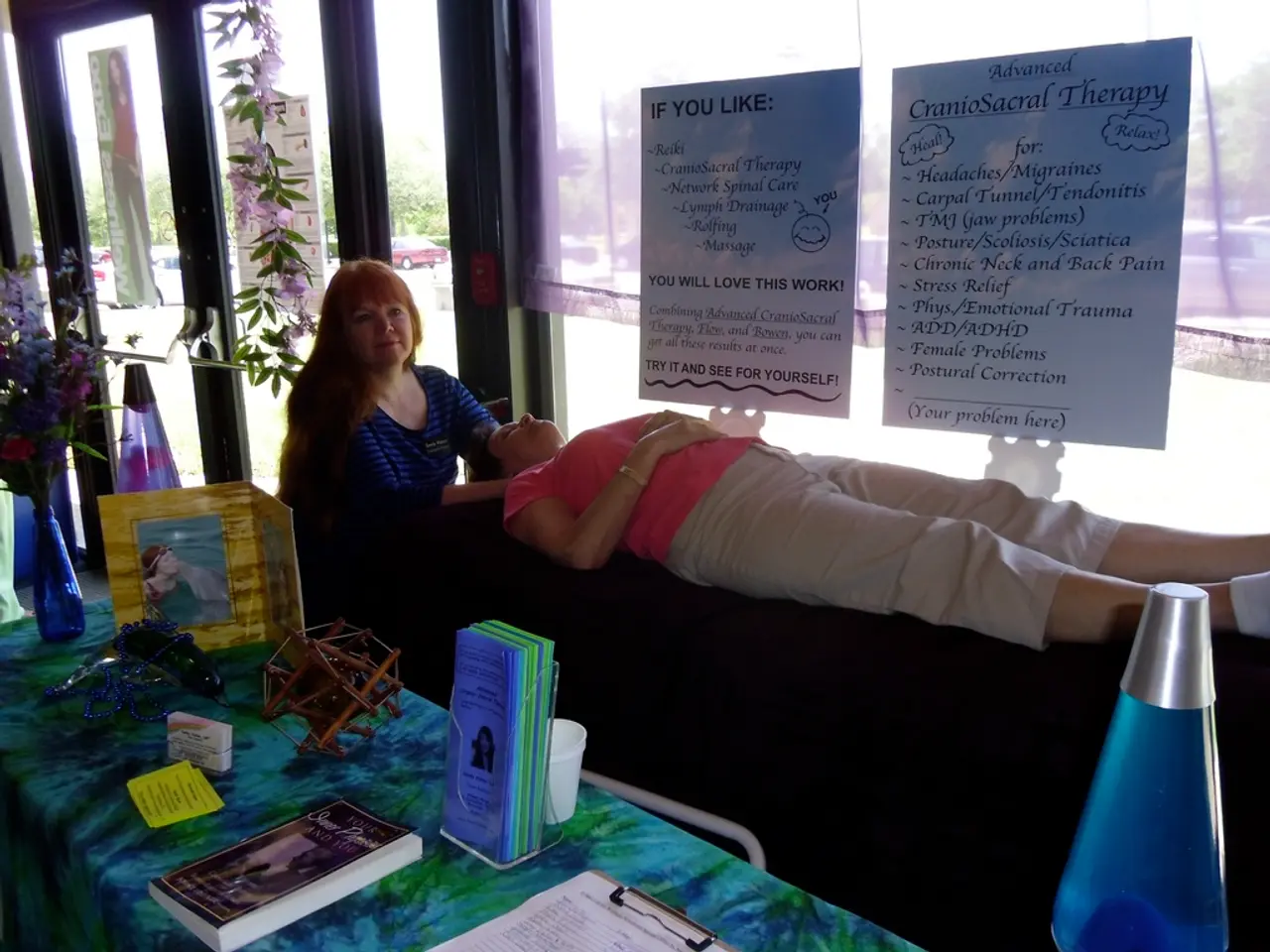Escaping the Recurring Habits Rooted in Early Life Wounds
In America, nearly 35 million children have experienced at least one serious trauma, according to the National Survey of Children's Health. Childhood trauma, defined as adverse experiences during formative years that can linger into adulthood, can lead to mental health issues like anxiety, depression, and PTSD. However, there are effective strategies for breaking free from the effects of childhood trauma.
Embracing personal growth can lead to a deeper awareness of self, offering opportunities for setting goals, exploring new interests, and cherishing life through a different lens. Taking back control and setting small, manageable goals that echo personal values can empower individuals dealing with childhood trauma. Establishing boundaries can help protect individuals from further emotional chaos and promote healing.
Identifying traumatic triggers is a foundational step. This involves recognizing specific situations, thoughts, or sensory experiences that provoke emotional distress related to past trauma and developing awareness to manage or avoid these triggers when possible.
Developing healthy coping mechanisms is crucial for managing stress and emotional dysregulation. Techniques include practicing mindfulness and meditation to enhance emotional regulation and reduce stress, engaging in physical exercise, art therapy, breathwork, and creative activities that serve as constructive outlets for processing emotions. Learning grounding techniques and distress tolerance skills through therapies like Dialectical Behavior Therapy (DBT) also proves effective in controlling overwhelming emotions tied to trauma.
Seeking professional help typically involves trauma-informed therapy approaches that prioritize safety and empowerment. Evidence-based therapies beneficial for childhood trauma include Eye Movement Desensitization and Reprocessing (EMDR), Narrative Exposure Therapy (NET), Trauma-Focused Cognitive Behavioral Therapy (TF-CBT), Somatic Experiencing, Schema Therapy, and inner child work.
Building a support network involves connecting with others who have experienced similar trauma through support groups, peer coaching, or group therapy, which helps reduce isolation and fosters community. Open communication about family trauma can also be healing by encouraging honesty and connection.
Practicing gratitude journaling or daily affirmations can help cultivate resilience by shifting attention away from shadows toward hopeful horizons. Self-compassion can help mitigate the effects of trauma by encouraging individuals to treat themselves with kindness. Therapy can provide a non-judgmental, sacred space to understand and address childhood traumas.
Medication may be part of the healing journey for some individuals dealing with anxiety or depression related to childhood trauma. Community groups and organizations offer various resources such as workshops, counseling, and social events to support individuals dealing with trauma.
In summary, a multifaceted healing approach combining self-awareness, healthy coping, trauma-specific therapies, and supportive relationships is most effective for overcoming childhood trauma effects. Recognizing triggers, making healthier choices, leaning on those who care, and reaching for personal growth are ongoing aspects of breaking free from childhood trauma patterns. Cognitive Behavioral Therapy (CBT) is a therapy used to help individuals recognize and challenge negative thought patterns related to trauma. Friends and family can provide emotional support and help during the healing process, with open communication being critical. Seeking professional help is crucial for individuals dealing with childhood trauma.
- Engaging in practices like mindfulness, gratitude journaling, and self-compassion can lead to personal growth, helping individuals shift their focus towards a more hopeful future.
- Establishing boundaries and setting small, achievable goals that align with personal values can empower individuals handling childhood trauma, offering a sense of control in their lives.
- Seeking out education and self-development resources on health-and-wellness, mental health, and mental-health can provide valuable insights into effective coping strategies for managing the effects of childhood trauma.
- Trauma-informed therapeutic approaches, such as Cognitive Behavioral Therapy (CBT), EMDR, and inner child work, can help individuals recognize and challenge negative thought patterns related to trauma.
- Building a supportive network through therapeutic groups, peer coaching, or open family communication can foster resilience, reduce isolation, and encourage healing.
- In addition to personal efforts, individuals dealing with trauma can benefit from professional help, including evidence-based treatments like dialectical behavior therapy (DBT), narrative exposure therapy (NET), and trauma-focused cognitive behavioral therapy (TF-CBT).




